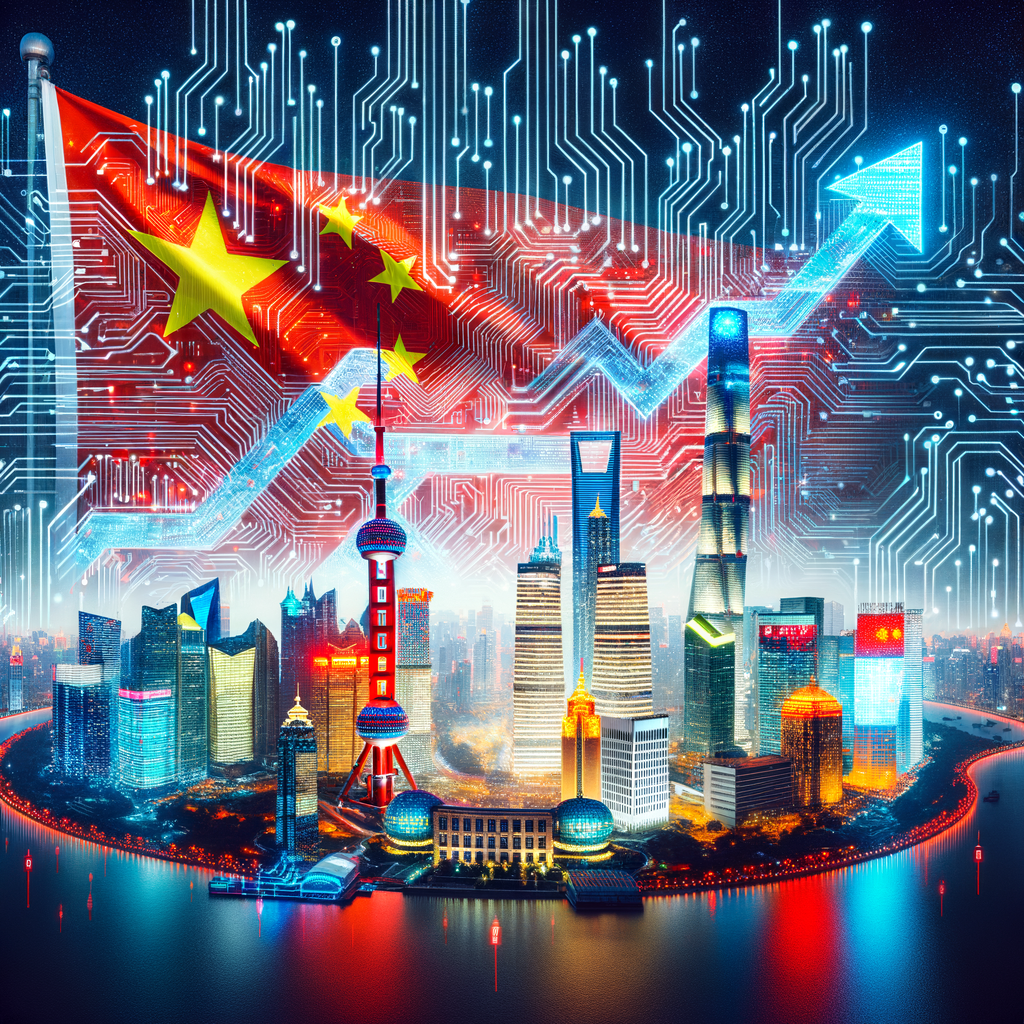Stay ahead in the rapidly evolving AI landscape by understanding the intensifying competition across multiple fronts, from strategic acquisitions to national policies. Discover how these dynamics impact industries and reshape the global economy, and gain actionable insights by tracking industry leaders' tactical maneuvering in areas like AI browsers.
Microsoft and OpenAI's AI Browser Battle: A 48-Hour Face-Off
The gloves are off in the AI News world, with Microsoft and OpenAI engaging in a fierce 48-hour face-off in the burgeoning AI browser market. What started as a seemingly cooperative venture has quickly morphed into a direct competition, showcasing the complex dynamics of the AI landscape. Let's dive into the details of this clash of the titans.
Mirror Images: Copilot vs. Atlas
Microsoft's recent unveiling of its enhanced Copilot mode for Edge bears a striking resemblance to OpenAI's rumored "Atlas" browser. Both platforms feature a visually intuitive interface, seamlessly integrating chatbot functionalities directly into the browsing experience. It's as if both companies were working from the same playbook, aiming to redefine how we interact with the web. The core idea is to move beyond simple search and provide a proactive AI assistant that can understand context, anticipate needs, and execute tasks on your behalf.
Copilot: Microsoft's 'Definitive Entry'
According to Mustafa Suleyman, a key figure in Microsoft's AI strategy, Copilot represents Microsoft's "definitive entry" into the AI browser category. This bold statement underscores the company's commitment to carving out a significant share of this emerging market. Copilot boasts several key features, including:
Tab summarization: Condensing lengthy articles or research papers into digestible summaries.
Task execution: Streamlining everyday tasks such as booking hotels or making reservations.
The 'Mico' avatar: A friendly, visual representation of the AI assistant, adding a touch of personality to the interaction.
These features promise to make browsing more efficient, informative, and even enjoyable. For example, imagine using Microsoft Copilot to instantly summarize a complex AI research paper you found via Semantic Scholar.
A Complex Relationship
The situation is further complicated by Microsoft's substantial investment in OpenAI. While the two companies collaborate on various projects, including integrating ChatGPT into Microsoft products, they are now undeniably competing in the AI browser space. This raises questions about the long-term sustainability of their partnership and the potential for future conflicts. Will Microsoft's ambitions ultimately overshadow its alliance with OpenAI? Only time will tell.

Privacy Concerns
One of the key concerns surrounding AI browsers is the issue of privacy. To provide personalized and proactive assistance, these browsers require access to vast amounts of browsing history and personal data. This raises legitimate questions about how this data is being used and protected. Users must carefully consider the privacy implications before entrusting their browsing activity to an AI-powered browser. This may be a reason to explore alternatives, like Kagi Search, which focuses on privacy.
Prompt Injection Risks & Data Manipulation
A significant risk in AI browsers, and other LLM applications, is prompt injection. Malicious actors can craft prompts that manipulate the AI into performing unintended actions, potentially compromising security or data integrity. Developers must implement robust safeguards to prevent prompt injection attacks and ensure the AI operates as intended. Data manipulation represents another risk, with the potential for biased or inaccurate information to influence the AI's responses. Vigilance and continuous monitoring are essential to mitigate these threats.
This intense competition highlights the rapid pace of innovation in the AI world. As both companies continue to refine their AI browser offerings, users can expect even more sophisticated features and capabilities in the future. This battle will likely shape the future of how we navigate and interact with the internet, but the privacy implications need to be adressed.
OpenAI Acquires Mac AI Startup: Consolidating Talent and Expanding ChatGPT's Reach
The AI landscape is rapidly evolving, and the battle for talent is fiercer than ever. In a move that underscores this reality, OpenAI recently acquired Software Applications, a Mac AI startup, signaling its intent to further solidify its position in the consumer AI space. This acquisition brings a wealth of expertise and technology directly into the ChatGPT ecosystem, potentially accelerating its development and expanding its capabilities.
Integrating Talent and Technology
Software Applications, the acquired company, was founded by a team of former Apple engineers, notably those involved in the creation of iPhone Shortcuts. This pedigree brings a deep understanding of user-friendly interface design and seamless integration within the Apple ecosystem. The entire 12-person team is set to join OpenAI, effectively injecting fresh talent and perspectives into the company’s engineering ranks. Key to this acquisition is 'Sky,' Software Applications' flagship AI assistant. Sky features a floating interface that allows users to interact with AI directly from their Mac desktop, streamlining workflows and offering intuitive assistance. Think of it as having a mini-Jarvis right on your screen.
Strategic Implications for OpenAI
This acquisition represents a strategic play by OpenAI to bolster its consumer-facing AI offerings. In a competitive market dominated by players like Google with Google Gemini and Anthropic with Claude, OpenAI is clearly focused on enhancing ChatGPT's appeal and utility for everyday users. Rather than building every feature from scratch, OpenAI is demonstrating a clear strategy of acquiring specialized talent and proven technologies to accelerate its roadmap. This approach allows them to rapidly integrate innovative solutions and stay ahead in the fast-paced AI race.
Potential Competition with Apple Intelligence
Interestingly, this move also sets the stage for potential future competition with Apple itself. As Apple continues to develop its own AI capabilities, rumored to be called "Apple Intelligence," the expertise gained by OpenAI through this acquisition could prove invaluable in creating a compelling alternative for Mac users. The seamless desktop AI interface pioneered by 'Sky' directly challenges Apple's own potential integrations, creating an intriguing dynamic in the consumer AI market. It remains to be seen how these players will navigate this evolving landscape, but one thing is clear: the race for AI dominance is just beginning, and talent is the new gold. For the latest updates and developments, be sure to check out our AI News section.
China's 'AI+' National Initiative: A Coordinated Push for AI Leadership
China's ambition to lead the AI revolution is crystal clear, especially with the unveiling of its 'AI+' national initiative during a high-profile CPC press conference. This isn't just another policy announcement; it's a declaration of intent to weave artificial intelligence into the very fabric of the nation's economy and society. This initiative acts as a national framework to systematically inject AI across all industries, unlike the more fragmented approaches seen elsewhere.
Open Data for an AI-Powered Future

A cornerstone of the 'AI+' initiative is the commitment to establishing an open, shared, and secure nationwide integrated data market. Think of it as building a massive, well-organized library where AI algorithms can access the information they need to learn and improve. By breaking down data silos and encouraging collaboration, China aims to fuel the development of more powerful and versatile AI applications. This also involves establishing robust cybersecurity measures and regulatory frameworks to protect sensitive data and prevent misuse, a critical element given the scale of data being handled. China is aiming for comprehensive empowerment, not just isolated AI applications. This means looking at everything from manufacturing and agriculture to healthcare and education, with the goal of making each sector more efficient, innovative, and competitive through AI.
Economic Impact and Model Performance
The market has already responded, with Shanghai stocks experiencing a notable surge driven by rallies in semiconductor and AI firms. This immediate reaction underscores the market's confidence in the potential of the 'AI+' initiative to unlock new growth opportunities. Adding fuel to the fire, Chinese AI models like Alibaba's Qwen have been making waves in investment competitions, often outperforming their international counterparts. This is a testament to the rapid progress being made by Chinese researchers and developers, and the significant resources being poured into AI innovation.
US-China AI Competition & Divergent Governance Models
The 'AI+' initiative also highlights the contrasting approaches to AI governance between the US and China. While the US fosters a more decentralized, market-driven AI ecosystem, China's top-down, centrally coordinated approach allows for rapid deployment and standardization of AI technologies across various sectors. The two nations are approaching the same goal – AI leadership – through vastly different paths. This difference also highlights the ongoing competition between the two nations, a competition that will likely define the future of AI and its global impact. As both countries continue to develop and deploy AI at scale, the world watches to see which model will prove more effective in harnessing the transformative power of artificial intelligence. For example, tools like TensorFlow are critical to advancing AI capabilities.
CrowdStrike CEO Challenges 'Software Death' Narrative: AI Will Strengthen SaaS
Forget the doomsayers predicting the death of software; CrowdStrike CEO George Kurtz is betting big on AI to supercharge the SaaS revolution. While some analysts speculate that AI agents will eventually render traditional SaaS models obsolete, Kurtz argues the opposite: AI's explosive growth is inextricably linked to a robust software infrastructure. In fact, he believes AI won't replace SaaS; it will revitalize it.
AI: The Engine Powering SaaS Evolution
Kurtz's argument hinges on the idea that AI isn't some independent entity; it's a technology built upon layers of software. Think of it like this: AI models require vast amounts of data processing, secure storage, and seamless integration with existing systems – all of which are core strengths of SaaS. Moreover, AI isn't just passively using software; it's actively enhancing it. AI algorithms can be embedded within SaaS platforms to boost efficiency, bolster security, and improve adaptability. Imagine Grammarly, the AI-powered writing assistant, learning your writing style and offering more relevant suggestions over time. That's AI making SaaS smarter.
Consider also the cybersecurity landscape. As AI becomes more prevalent, the need for robust security measures intensifies. This is where companies like CrowdStrike, specializing in cloud-delivered protection of endpoints, cloud workloads, identity and data, become even more crucial. The rise of AI creates new threat vectors, demanding innovative cybersecurity solutions that can adapt in real time. This drives further demand for SaaS-based security services that leverage AI to detect and respond to emerging threats.

The Interconnectedness of AI and Cybersecurity
The recent AWS cloud disruptions serve as a stark reminder of the importance of reliable infrastructure. AI, for all its sophistication, is ultimately reliant on the stability and security of the underlying cloud. Outages not only disrupt AI-powered applications but also highlight the critical need for redundancy, resilience, and proactive threat detection – all areas where SaaS-based cybersecurity solutions shine. The evolution of cybersecurity, fueled by AI, demands a proactive, adaptive approach. AI-powered threat intelligence, behavioral analysis, and automated response capabilities are becoming essential for organizations to stay ahead of increasingly sophisticated attacks. This symbiotic relationship between AI and cybersecurity is set to define the future of both industries, solidifying the importance of SaaS as a delivery model.
So, while the AI revolution may bring disruption, it also promises to usher in a new era of innovation and growth for SaaS, particularly in the crucial realm of cybersecurity.
Fujikura's AI Data Center Boom: A Century-Old Company's Tech Renaissance
Fujikura, a name synonymous with Japanese industry for over a century, is experiencing a remarkable tech renaissance, demonstrating AI's transformative power far beyond the software realm. Its shares have surged by an astounding 160%, marking it as a standout performer on the Nikkei index, and this growth is directly attributable to the booming demand for AI data center infrastructure. This isn't just about software algorithms; it's about the physical backbone that supports the AI revolution.
Riding the Optical Fiber Wave
The key to Fujikura's resurgence lies in its expertise in optical fiber technology. As AI models grow increasingly complex, and data centers become ever more interconnected, the demand for high-speed, low-latency data transmission explodes. Optical fiber, capable of transmitting vast amounts of data with minimal loss, becomes the critical component for linking these AI powerhouses. Fujikura is perfectly positioned to capitalize on this demand, manufacturing the essential infrastructure that enables AI to function. Think of it as the circulatory system of the AI brain, and Fujikura is a major vein.

Japan: An Emerging AI Hub
Fujikura's success also highlights Japan's strategic positioning in the global AI landscape. The nation is actively striving to become a leading manufacturing hub for AI infrastructure. While much of the AI buzz centers around software and algorithms, the physical infrastructure – the chips, the servers, the networking equipment – is equally crucial. Japan, with its long history of precision manufacturing and technological innovation, is determined to secure a prominent role in this arena. Investment in AI is not just about algorithms, but also manufacturing capabilities.
From Traditional Industry to AI Enabler
Fujikura's story is a compelling illustration of how traditional industrial companies are adapting and thriving in the age of AI. It's a reminder that the AI revolution isn't limited to tech startups and Silicon Valley giants. Established companies, with their deep expertise and manufacturing capabilities, can leverage AI to transform their businesses and drive growth. It's a testament to the pervasive and transformative nature of AI News, reaching far beyond the digital world and reshaping industries in unexpected ways. This also provides an interesting view of the Top 100 companies adapting to this change.
Fujikura's transformation underscores a fundamental truth: AI's economic impact extends far beyond software development. It's creating new opportunities across a wide range of industries, from manufacturing and infrastructure to energy and transportation. This renaissance exemplifies how even century-old companies can adapt to the shifting sands of technology by leveraging their existing expertise and by investing in AI driven solutions.
Analysis: AI Competition Intensifies Across Multiple Fronts
The AI landscape is evolving at breakneck speed, and the competition is heating up across multiple fronts, pushing the boundaries of innovation and market dynamics. This isn't just about tech companies vying for dominance; it's a multifaceted contest involving strategic acquisitions, national policies, and a reshaping of traditional industries. The ripples of this AI arms race are being felt throughout the global economy. Let's dive into the key areas where this intense competition is most visible.
Tactical Maneuvering in the AI Browser Arena
We're seeing a fascinating game of rapid tactical responses, particularly in the AI browser market. Microsoft and OpenAI are locked in a dynamic dance, constantly adjusting their strategies to gain an edge. This includes integrating AI-powered features directly into browsers to enhance user experience and research capabilities. For example, Perplexity, an AI-powered search engine, offers a glimpse into how AI can transform information retrieval and synthesis. These competitive moves highlight the importance of agile adaptation in the fast-evolving AI space.
Strategic Acquisitions and Talent Consolidation
Strategic acquisitions are becoming a key tactic for major players to consolidate talent and secure cutting-edge technologies. OpenAI's moves in acquiring AI talent reflect a broader trend of companies seeking to rapidly enhance their capabilities. These acquisitions are not just about acquiring technology; they're about bringing in the expertise needed to push the boundaries of AI research and development. This also demonstrates how critical AI talent is becoming, resulting in higher prices and fierce competition for the best and brightest.
National Industrial Policies Fueling AI Development
National industrial policies are playing a crucial role in driving AI development, particularly in countries like China. China's "AI+ initiative" is a prime example of a government-led effort to integrate AI across various sectors of the economy. This involves significant investments in AI infrastructure, research, and talent development, aimed at establishing a global leadership position. As highlighted in AI News, these national strategies are significantly shaping the global AI landscape and intensifying competition.
AI Infrastructure Demands Reshaping Traditional Industries
The burgeoning demands of AI infrastructure are reshaping traditional industries. Companies like Fujikura, traditionally known for manufacturing, are pivoting to provide the essential infrastructure needed to support AI development. This includes high-performance computing, data centers, and advanced connectivity solutions. This shift underscores the transformative impact of AI on various sectors, creating new opportunities and demanding adaptation. These demands will only continue to increase as more powerful AI models, like GPT-5, are released.
Convergence and Global Economic Restructuring
These converging developments are reshaping technology markets and global economic dynamics. The AI arms race is not just a technological competition; it's an economic one, with far-reaching implications for industries, jobs, and global power structures. The push for Artificial General Intelligence (AGI) and the quest to create AI Agents that can do more and more is where much of this economic power will be centered. The convergence of strategic acquisitions, policy initiatives, and industrial transformations paints a picture of a world undergoing fundamental restructuring, driven by the relentless advancement of AI.
🎧 Listen to the Podcast
Hear us discuss this topic in more detail on our latest podcast episode: https://open.spotify.com/episode/4f2gSkTfyEJSflUIrH5YpR?si=gdN0KA0QTeCsF6LDKshbyw
Keywords: AI, Artificial Intelligence, Microsoft, OpenAI, China AI, AI Browser, SaaS, AI Infrastructure, AI Competition, Data Centers, Cybersecurity, AI+ Initiative, Machine Learning, Deep Learning, AI Investment
Hashtags: #AI #ArtificialIntelligence #TechNews #Innovation #AIBrowserWars
For more AI insights and tool reviews, visit our website https://best-ai-tools.org, and follow us on our social media channels!
Website: https://best-ai-tools.org
X (Twitter): https://x.com/bitautor36935
Instagram: https://www.instagram.com/bestaitoolsorg
Telegram: https://t.me/BestAIToolsCommunity
Medium: https://medium.com/@bitautor.de
Spotify: https://creators.spotify.com/pod/profile/bestaitools
Facebook: https://www.facebook.com/profile.php?id=61577063078524
YouTube: https://www.youtube.com/@BitAutor



